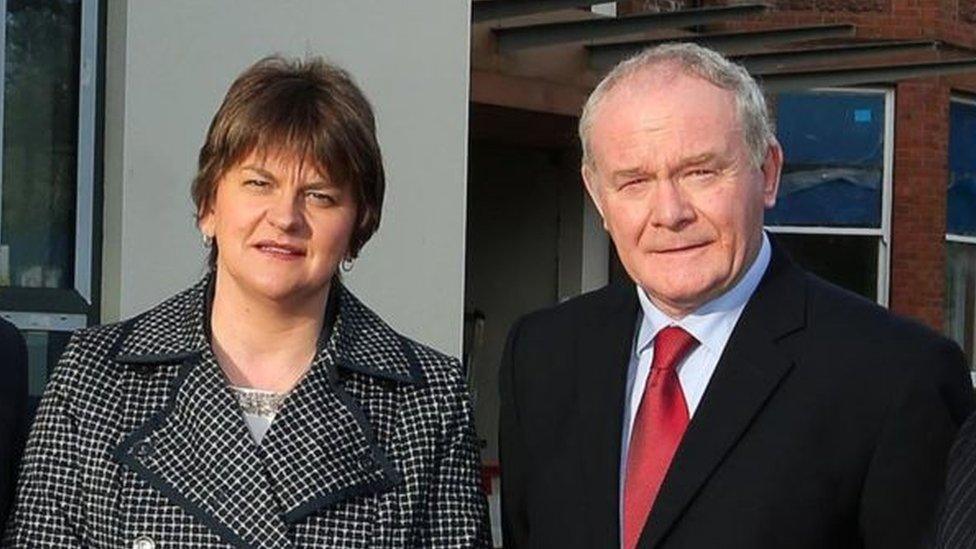Nichola Mallon backs calls to cut MLA pay
- Published
- comments
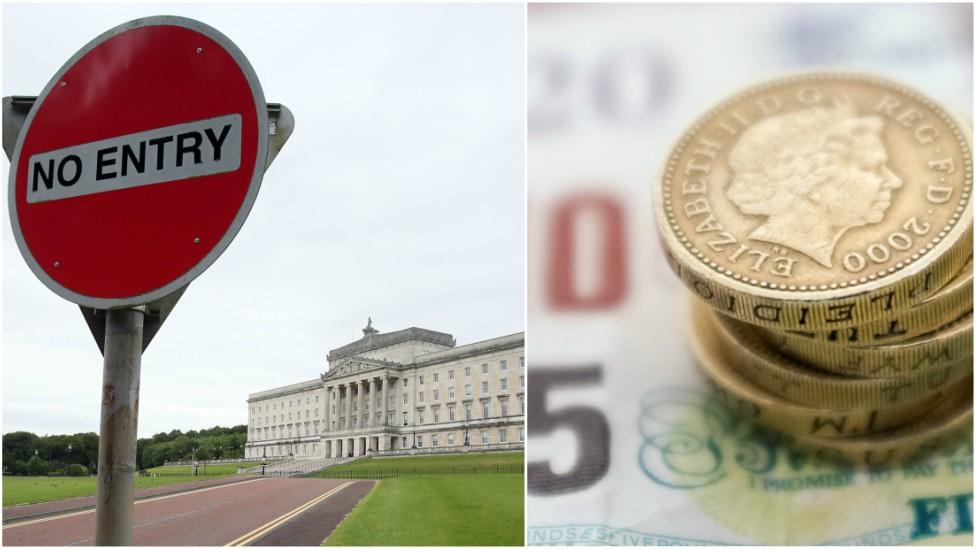
Talks are due to continue over the summer after parties failed to reach a power-sharing agreement
Stormont politicians' pay should be cut while the assembly is not sitting, according to one senior member.
"No one should be paid for a job they are not doing," SDLP MLA Nichola Mallon told the BBC's Good Morning Ulster.
Devolution in Northern Ireland has been on hold since the collapse of the executive in January.
Talks are due to continue over the summer months after parties failed to reach a power-sharing agreement before the parliamentary recess.
"We're sitting in a situation where the can has been kicked down the road to the autumn," said Ms Mallon.
The North Belfast representative said MLAs were not fulfilling their duties as elected officials, and so their pay should be altered accordingly.
"We are doing our constituency work but we are not performing our legislative role - we're not in our committees scrutinising legislation or taking evidence.
'Blank cheque'
A former member of the Independent Financial Review Panel which sets MLAs' salaries has called for their pay to be stopped entirely until a deal was reached - as it was wasting £1m of taxpayers' money each month.
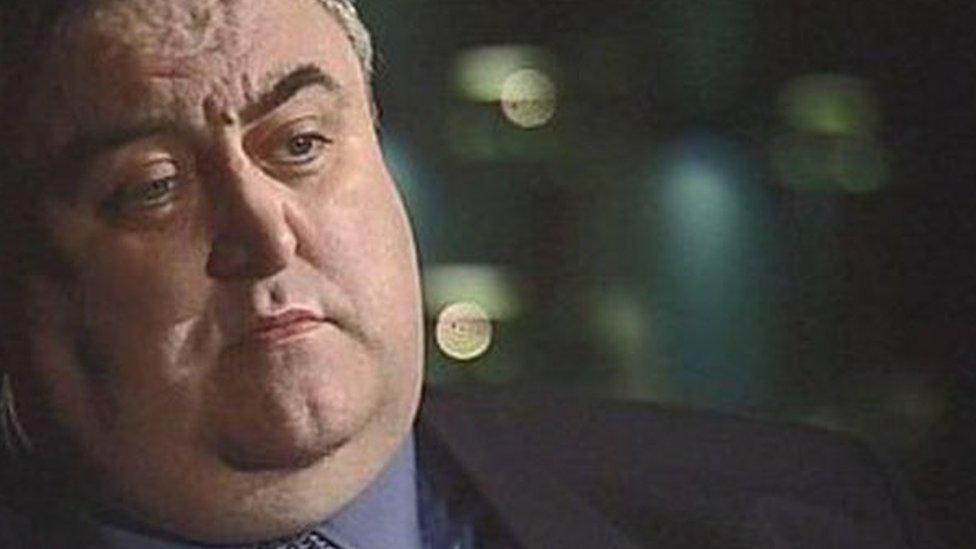
Alan McQuillan has called for MLAs' pay to be stopped until the assembly is back up and running
"Let's get real about it - they are not even going to go back to talks until September, October," said former PSNI Assistant Chief Constable Alan McQuillan.
"We've basically got a blank cheque for the next six months and this is at a time when people in the public sector, third sector will be losing their jobs," Mr McQuillan told the Nolan Show.
Northern Ireland's civil servants have been in control of finances for several months as a result of the ongoing deadlock.
As uncertainty over future finances continues, the government programme Sure Start has announced that 50 jobs in its South Belfast branch were in "jeopardy due to a lack of decisions on the Northern Ireland budget".
Northern Ireland Secretary James Brokenshire suggested this week he was considering passing a budget from Westminster.
To date, civil servants have only had 75% of the block grant allocation, but a budget bill would give them access to all £10bn of Northern Ireland's annual day-to-day spending funds.
This would also split the cash among individual departments like health and education, says BBC News NI Business Correspondent Julian O'Neill.
But it would still leave the question of who decides what polices or projects to spend it on, which are political decisions for ministers, not civil servants, adds our correspondent.
Holidays 'from time to time'
On Tuesday DUP leader Arlene Foster said the question of pay for MLAs "would be relevant if we weren't doing any work".
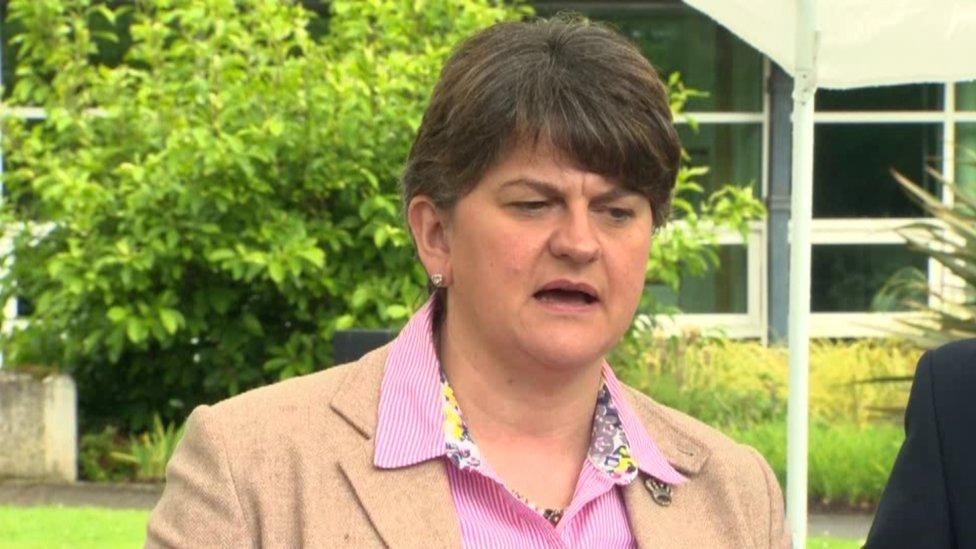
Arlene Foster says the DUP is committed to reaching a compromise
"I've indicated very clearly that we intend to continue the negotiations... over the coming months," said the former first minister.
"People will be off on holidays from time to time, but I think what you're hearing from myself and the DUP is a commitment to continue to do the work as we want to find an accommodation everyone can buy in to."
The most significant sticking points between the DUP and Northern Ireland's second largest party, Sinn Féin, remain an Irish language act, same-sex marriage, a Bill of Rights and measures to deal with the legacy of Northern Ireland's Troubles.
In January, the late Martin McGuinness, of Sinn Féin, resigned in protest over the DUP's handling of an inquiry into a botched green energy scheme.
His party had demanded that DUP leader Arlene Foster step aside temporarily to allow an investigation into the Renewable Heat Incentive scheme - which she set up - but Mrs Foster refused.
Over the past six months, and during two elections at Stormont and Westminster, the two parties have remained deadlocked over a number of issues.
- Published5 July 2017
- Published4 July 2017
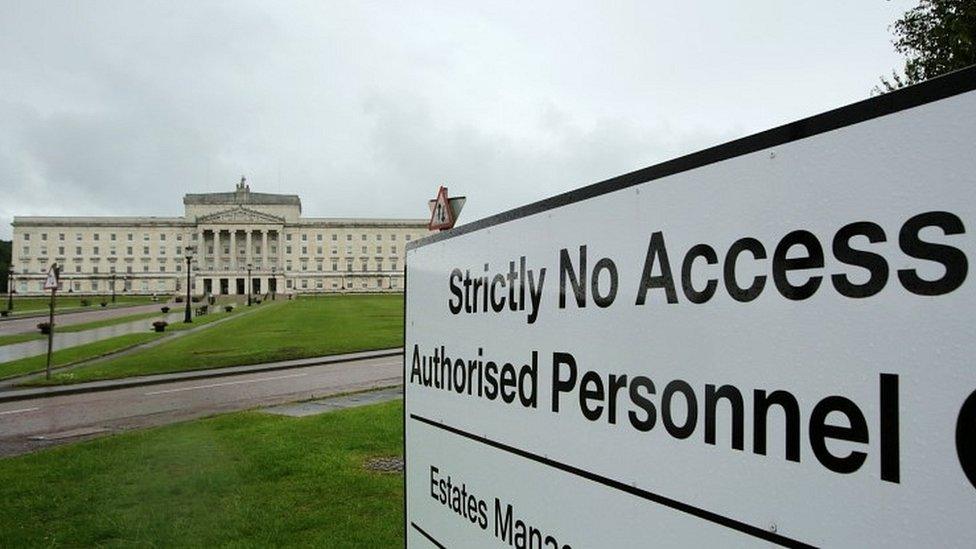
- Published29 June 2017
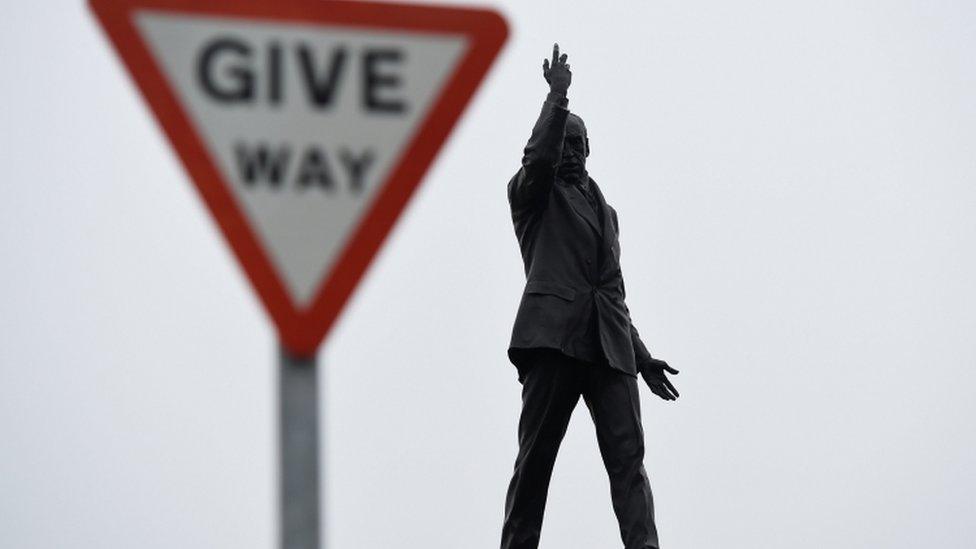
- Published27 June 2017
- Published21 April 2017
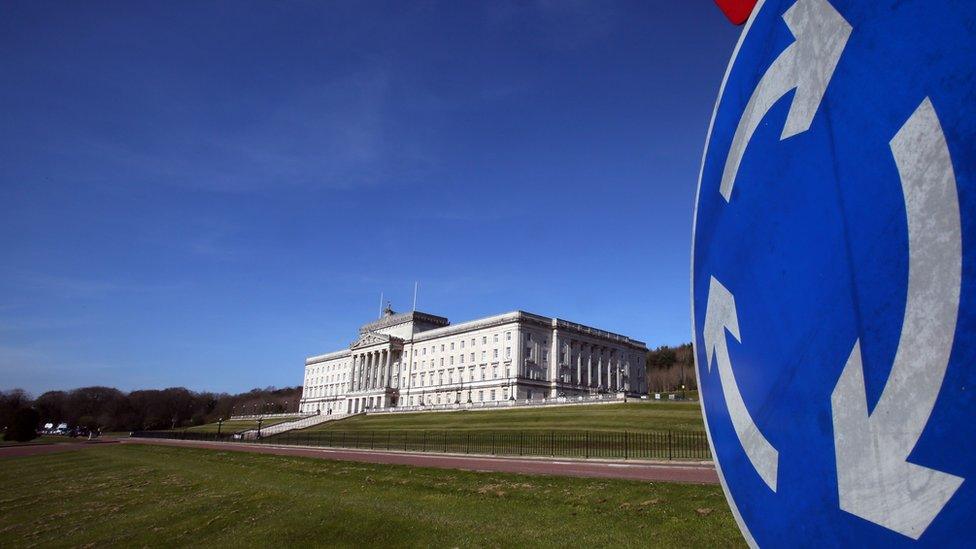
- Published16 January 2017
